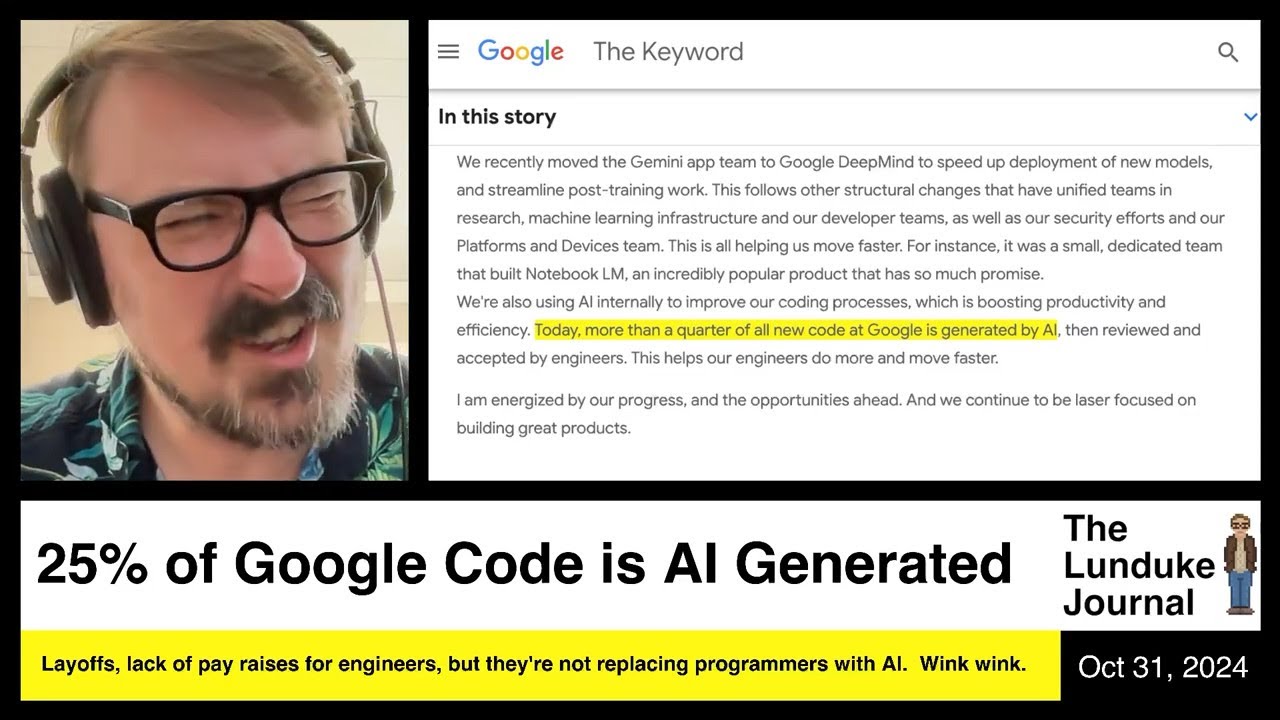In a recent earnings call, Google CEO Sundar Pichai revealed that 25% of new code at Google is now AI-generated, raising concerns about the implications for programming quality and job security as the company lays off employees. The speaker critiques the reliance on AI for coding, arguing that it undermines the human touch essential to programming and may lead to further layoffs as engineers shift from coding to merely reviewing AI outputs.
In a recent discussion, it was revealed that approximately 25% of all new code written at Google is now generated by AI. This statistic, shared by CEO Sundar Pichai during a quarterly earnings call, raises significant concerns about the implications of AI in programming, especially as Google is simultaneously laying off employees and not providing pay raises to engineers. The speaker reflects on the initial skepticism surrounding AI’s ability to replace programmers, noting that advancements in AI code generation have led to a shift in this perception.
The speaker critiques the notion that AI-generated code is somehow validated by human review, arguing that the essence of programming lies in the human touch. They liken the situation to a novel or song being generated by AI but then reviewed by a human, asserting that the original creation remains fundamentally machine-generated. The speaker emphasizes that many programmers struggle to understand code they wrote themselves years ago, let alone code generated by AI, which complicates the review process and raises questions about code quality.
Concerns about the quality of AI-generated code are highlighted, with the speaker suggesting that Google’s code quality has been declining. They argue that as more code is produced by AI, engineers may find themselves ill-equipped to address bugs or issues due to a lack of familiarity with the AI-generated code. This situation poses a risk to the stability and reliability of Google’s systems, as engineers may not fully grasp the nuances of the code they are tasked with reviewing.
The speaker also points out the broader implications of Google’s reliance on AI, suggesting that the company is effectively replacing engineers with AI systems. They predict that this trend will lead to further layoffs in the engineering department, as the role of programmers shifts from active coding to merely reviewing AI-generated outputs. This shift raises ethical concerns about job security and the future of programming as a profession.
Finally, the speaker draws parallels between the programming industry and tech journalism, where AI-generated articles are becoming increasingly common. They argue that both fields are experiencing a similar trend of replacing experienced professionals with cheaper labor to review AI outputs. The overarching theme of the discussion is a warning about the potential consequences of relying heavily on AI in creative and technical fields, emphasizing the need for human expertise and oversight in the development of technology.
